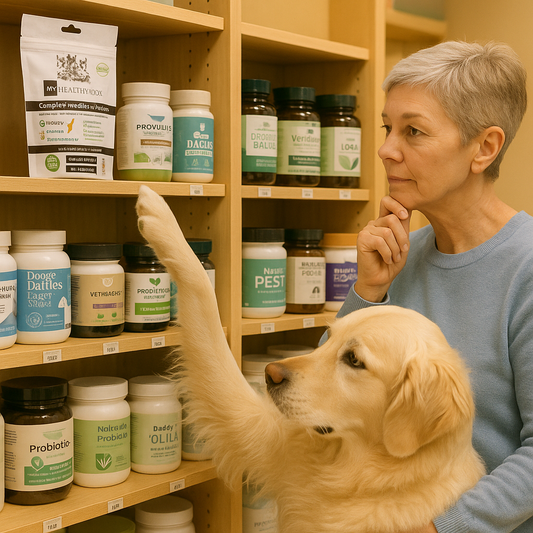The Havanese, with its silky coat and affectionate demeanor, is a breed that brings joy and companionship to any household. Known for its playful and friendly nature, this small dog is perfect for families, singles, and seniors alike. This article explores the detailed origins, striking appearance, and character traits of the Havanese, along with essential care tips to ensure these delightful dogs lead healthy, fulfilling lives.
Breed Summary
Origin and History
The Havanese is the national dog of Cuba, with origins dating back to the early Spanish settlers who brought small companion dogs with them. These dogs interbred with local breeds, resulting in the Havanese we know today. The breed was highly favored by Cuban aristocracy in the 18th and 19th centuries and was a symbol of wealth and status. The Havanese made its way to the United States during the Cuban Revolution when many Cuban families fled to safety, bringing their beloved pets with them.
Appearance
Havanese dogs are small, sturdy, and slightly longer than they are tall, typically standing between 8.5 to 11.5 inches at the shoulder and weighing between 7 to 13 pounds. They have a distinctive silky coat that can be straight, wavy, or curly, and comes in a variety of colors, including white, black, chocolate, and parti-color. Their large, dark eyes and expressive face give them a charming and alert appearance. The Havanese has a springy gait, reflecting its energetic and lively personality.
Temperament
Havanese are known for their cheerful, friendly, and outgoing nature. They form strong bonds with their families and enjoy being the center of attention. These dogs are highly sociable and get along well with children, other pets, and strangers. Their intelligence and eagerness to please make them highly trainable, although they can be a bit stubborn at times. Havanese thrive on human companionship and do not do well when left alone for long periods.
Health Outlook
The Havanese is generally a healthy breed with a lifespan of 14 to 16 years. However, they are prone to certain health issues, including hip dysplasia, cataracts, and heart conditions. Common skin and hair conditions, such as dry, itchy skin, can also affect Havanese. Using a premium dog shampoo designed to moisturize and protect sensitive skin can help alleviate these issues. Such shampoos offer benefits like reducing itching, maintaining a healthy coat, and preventing infections.
Nutritional Requirements
A balanced diet is crucial for the Havanese's overall health and well-being. High-quality dog food rich in protein and low in fillers is ideal. Given their small size, Havanese benefit from a diet that supports their energy levels and maintains a healthy weight. Including a complete multivitamin in their diet can ensure they receive all the necessary nutrients, supporting their immune system, joint health, and overall vitality.
Exercise Requirement
Havanese are moderately active dogs that require regular exercise to stay happy and healthy. Daily walks, combined with playtime and opportunities to run in a secure area, are essential. They also enjoy interactive games and activities like obedience training and agility courses, which provide mental and physical stimulation.
Pros and Cons of Owning a Havanese
Pros:
- Friendly and sociable, excellent with children and other pets.
- Highly trainable and eager to please.
- Adaptable to various living environments, including apartments.
Cons:
- Can be prone to separation anxiety if left alone for long periods.
- Requires regular grooming to maintain their coat.
- May be stubborn during training without consistent, positive reinforcement.
Space Requirements
The Havanese is highly adaptable and can thrive in a variety of living environments, from apartments to larger homes. They do well with access to a secure yard but can also get enough exercise with indoor play and regular walks.
Suitability for Elderly
The Havanese's small size, moderate exercise needs, and affectionate nature make them an excellent companion for elderly owners. They are easy to handle and provide great companionship without requiring extensive physical activity.
Suitability for Kids
Havanese are excellent with children due to their friendly and playful nature. They are patient and enjoy the company of kids, making them a great addition to a family. Supervision is always recommended to ensure harmonious interactions, especially with younger children.
Cost
The cost of a Havanese puppy can range from $1,000 to $2,500, depending on the breeder's reputation and the lineage of the pup. Additional costs include food, grooming, healthcare, and training.
What Should the Owner Be Like?
Owners of Havanese should be attentive, loving, and committed to providing the necessary care and companionship. They should be prepared for regular grooming sessions and consistent, positive training to manage the breed's intelligence and occasional stubbornness.
Fun Facts
- The Havanese is the only dog breed native to Cuba, earning it the nickname "Cuban Velcro Dog" due to its tendency to stick close to its owners.
- Havanese dogs were once popular in the circuses of Europe for their ability to perform tricks and their charming, playful nature.
Conclusion
The Havanese is a delightful and affectionate breed that brings joy and companionship to any home. With their friendly nature, intelligence, and adaptability, they make excellent companions for families, singles, and seniors alike. While they come with some grooming and training needs, the rewards of owning a Havanese are immense. For those who appreciate a lively and loyal canine friend, the Havanese is a perfect match.
Are you familiar with the Havanese or have this wonderful breed in your family?
Share your stories in the comments!
Share the Article with friends!





